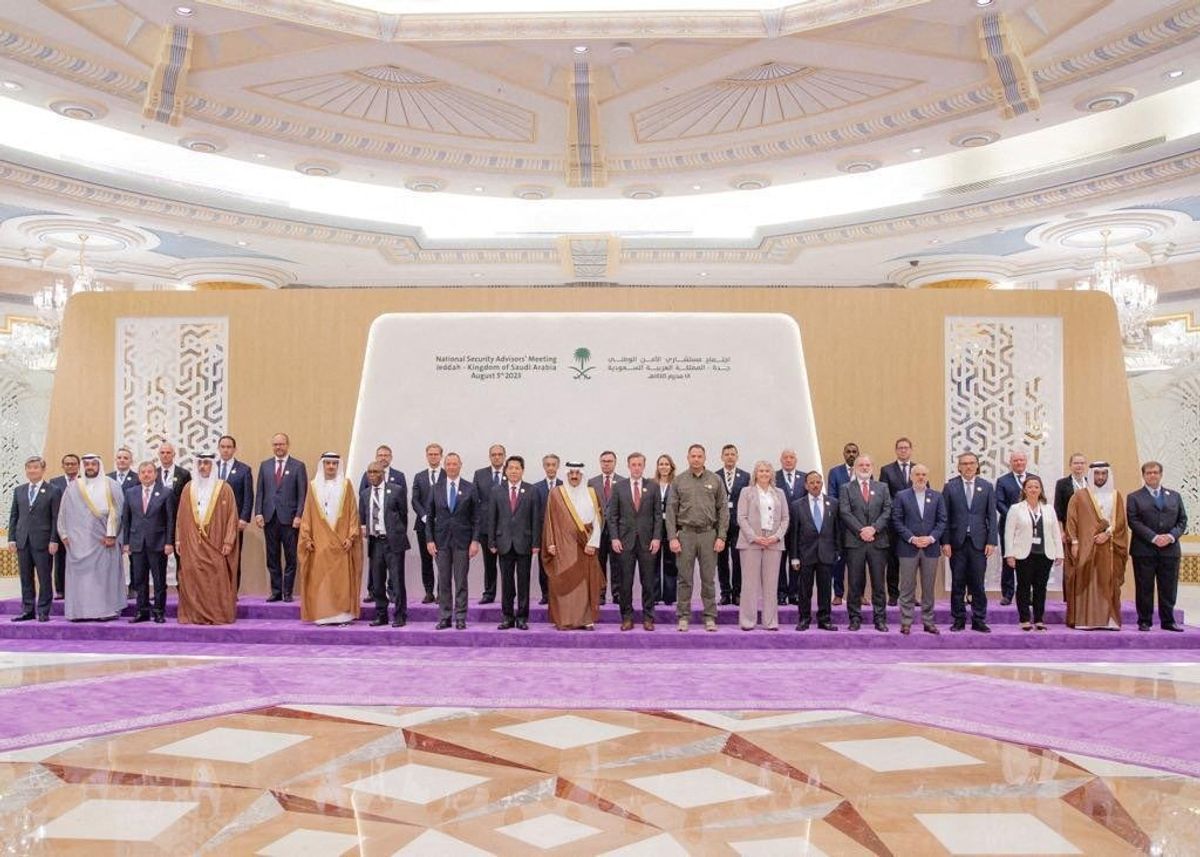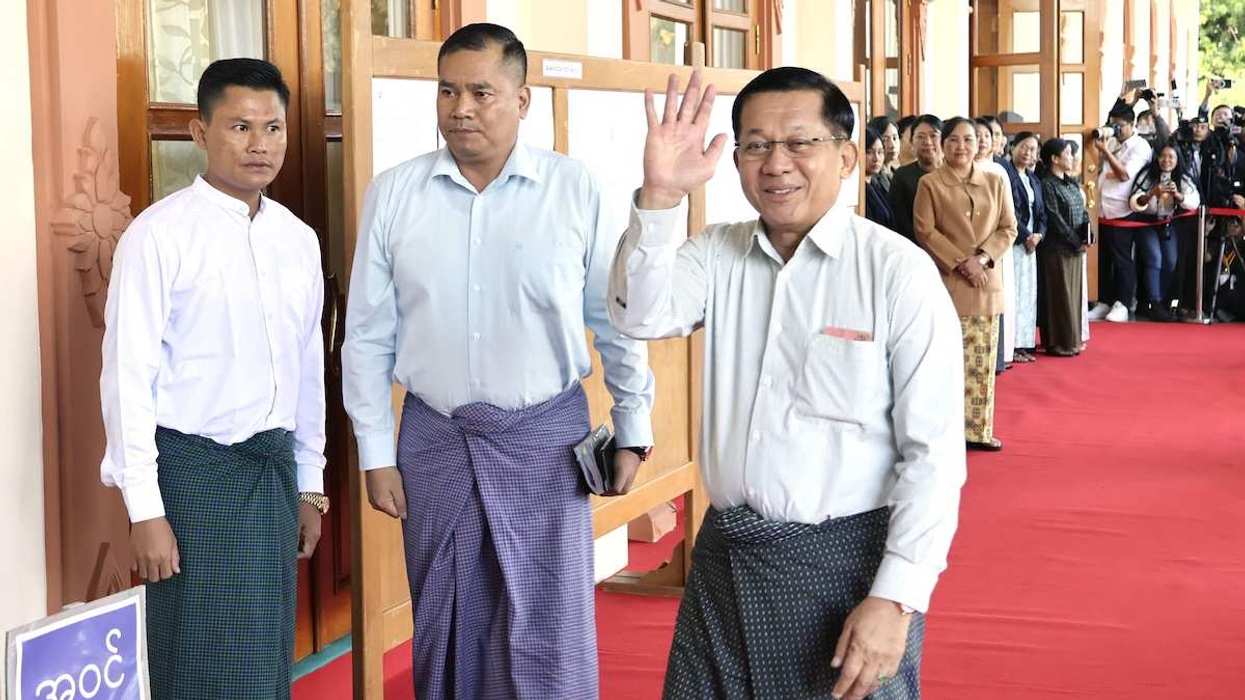The Ukraine diplomatic sweepstakes continued this weekend as representatives from more than 40 countries gathered in Jeddah, Saudi Arabia, to try to forge a path toward peace negotiations between Russia and Ukraine. While Russia wasn’t invited, Volodymyr Zelensky said he hoped the talks would lead to a summit later this year and an endorsement of his 10-point formula for peace.
His plan demands that Russia hand over occupied Ukrainian territory – a clear nonstarter for Moscow – and calls for Russian troops to leave Ukraine before peace talks begin, something the Kremlin does not seem inclined to do.
The Jeddah talks followed a June summit in Copenhagen, but how was this one different?
First, after balking at the Danes’ invite last time, China agreed to attend. That was a big win for Ukraine, which knows that Beijing has Putin’s ear, and for the Saudis, who wanted the conference to be viewed by the West and Russia alike as a serious diplomatic forum.
Given that China continues to buy copious amounts of Russian oil and gas, helping the Russian economy stay afloat despite Western sanctions, having Beijing be part of a broader peace push is crucial. And as we’ve written before, China is the one country that has both the carrots and the sticks needed to persuade Putin and Zelensky to swallow compromise.
What’s more, a number of so-called non-aligned countries – including India, Brazil, and South Africa – that have so far refused to acquiesce to Western demands that they ditch relations with the Kremlin, also participated. Though they attended the summit in Copenhagen, the contours of this event were different given that it was hosted by a country with close ties to the Kremlin.
Did anything concrete come from the talks?
The Ukrainian delegation reportedly said Zelensky’s proposals were supported by several in attendance.
Meanwhile, China’s special envoy for Eurasian affairs, Li Hui, noted that the participants had “many disagreements,” adding “we have heard different positions, but it is important that our principles are shared.” Beijing also reportedly expressed enthusiasm for a third round of talks.
Moscow, meanwhile, has referred to the peace talks as “doomed.”
We’ll be watching to see what Saudi Crown Prince Mohammed bin Salman, who is trying to rehabilitate his image after years of very bad PR and boost his profile as a legitimate international interlocutor, does next. He had a lot riding on this summit, and while Ukraine and Russia seem too far apart to imagine any significant progress, China’s involvement offers a glimmer of hope.

















